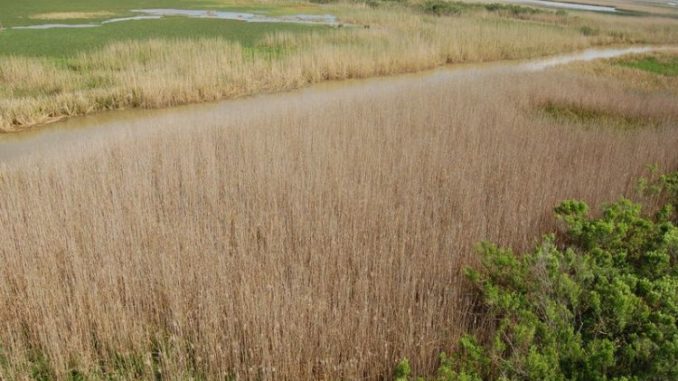
Quarantine issued to combat invasive insect destroying the plant
The Louisiana Department of Agriculture and Forestry has issued a quarantine for about the southern one-third of the state which prohibits transporting and transplanting roseau cane, to prevent the spread of roseau cane scale.
The quarantine area encompasses all areas south of Louisiana Highway 10, and begins at the Mississippi/Louisiana state line and moves west until intersecting with U.S. Highway 171 in Vernon Parish, then moves south and continues to U.S. Highway 190 in DeRidder until reaching the Sabine River and the Texas/Louisiana state line.
With teal season less than three weeks away, the Louisiana Department of Wildlife and Fisheries is advising waterfowl hunters and fishermen to be aware of the quarantine area and the threat posed by the scale.
According to a LDWF press release, hunters and fishermen are asked not to transport the cane, or tie their boats to it. And cane debris should be removed from boats — and boats should be washed with soapy water and drained — prior to leaving marinas in the quarantine area.
The scale, native from China or Japan, has been identified as Nipponaclerda biwakoensis , commonly referred to as Phragmites Scale or Roseau Cane Mealy Bug. It has had severe effects on the dominant vegetation of the Mississippi River Delta, and the rate at which it is expanding is alarming, according to LDWF, LDAF and LSU AgCenter biologists.
Roseau cane is a tall wetland grass that helps protect the Mississippi River’s bird-foot delta and Louisiana’s coastal region. Unlike some marsh vegetation, roseau cane stands up well to tropical storm events and is one of the most erosion-resistant marsh plants along the Louisiana coast.
The spread of the scale could have severe impacts on the health of the state’s coastal marshes as well as valuable agricultural crops throughout the state, according to the release. For more information on roseau cane, click here.